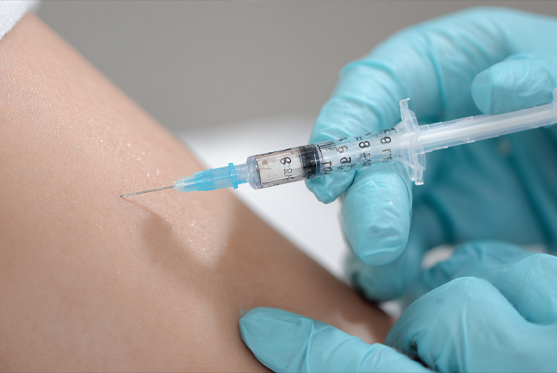



At Comprehensive Pain Solutions of New Jersey, we take a progressive, patient-centered approach to pain management. Our goal is to reduce pain, restore function, and improve quality of life using innovative non-opioid therapies.
Opioid medications have recently been widely used for pain conditions. The prescribing of opioid pain medications for pain management has increased more than fourfold in the United States since the mid-1990s. Increased opioid prescribing has resulted in serious public health problems. The use of opioids in long-term, non-cancer chronic pain carries significant risks:
Because of these concerns, leading guidelines now recommend non-opioid treatments as first-line therapy for many chronic pain conditions.
Fortunately, many effective alternatives are available — and often work even better when used together in a multidisciplinary approach:
1. Physical Therapy/Chiropractic Treatments
Physical therapists help patients strengthen muscles, improve flexibility, correct posture, and retrain movement patterns. This can reduce strain on painful areas, improve mobility, and prevent further injury.
Chiropractors use pressure to manipulate joints in your body to realign your spine. Chiropractic adjustment can
2. Nerve Blocks and Interventional Pain Procedures To avoid opioid medications, targeted injections of local anesthetics, steroids, or other agents near nerves, joints, or the spine can provide temporary — and sometimes long-lasting — pain relief.
Common options include:
More advanced options such percutaneous discectomy and spinal cord stimulation are also available. All of these procedures are minimally invasive and are mostly performed under image guidance for precision. The goal of these procedures is to improve symptoms and quality of life while avoiding the need for more risky surgical procedures.
Pain is not just a physical sensation — it is closely linked to emotional, mental, and behavioral factors. CBT is a structured, evidence-based therapy that teaches patients how to:
Acupuncture, biofeedback, mindfulness meditation, and yoga have shown benefit for many pain conditions. These therapies help modulate the nervous system and promote relaxation and self-regulation.


Chronic pain is complex — so successful treatment often requires a team-based strategy that addresses multiple dimensions of the pain experience. This may include:
By combining these tools, patients often achieve better pain control, improved function, and a reduced need for medications, including opioids.
At Comprehensive Pain Solutions of New Jersey, we specialize in non-opioid, evidence-based pain management tailored to each patient’s unique needs. Our team collaborates with physical therapists, mental health providers, and other specialists to deliver integrated care that works.
We offer:
Come in for a visit to discuss our multi-disciplinary approach to achieving a better quality of life by treating your pain from multiple angles.
Contact Comprehensive Pain Solutions of New Jersey To Schedule An Appointment.
(855) 830-0999
(856) 334-9602
P.O. Box 4160, Cherry Hill NJ 08034